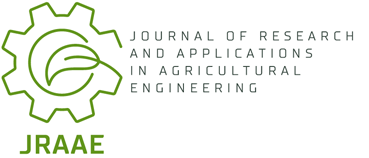Current issue
Online First
Archive
Instructions for Authors
Guide for Authors
Peer Review Policy
Research Ethics Policy
Crossmark Policy
Ghostwriting and Guest Authorship
Copyright
Open Access Policy
Plagiarism
About the Journal
Aim and Scope
Scientific Board
Publisher
Editorial Board
Indexing in Databases
Personal Data Protection
Repository Policy
Contact
ORIGINAL PAPER
Influence of water extracts from cornflower on germination and growth of cereals seedlings
1
Institute of Soil Science and Plant Cultivation - National Research Institute, Department of Weed Science and Tillage Systems, ul. Orzechowa 61, 50-540 Wroclaw, Poland
Journal of Research and Applications in Agricultural Engineering 2017;62(3):208-211
KEYWORDS
ABSTRACT
The aim of research was to determine the effect of different concentrations of water extracts of cornflower on germination capacity and early growth of winter wheat (Triticum aestivum L) and rye (Secale cereale L.) seedlings. The experiment was conducted in laboratory conditions with the use of modified test of germination and early growth of seedlingsPHYTOTOXKIT™. Investigation was carried out in 3 independent experimental series, in three replications for each of them. Experimental series took place in two-week intervals. In the experiments there was evaluated germination capacity of cereals grains on the basis of the quantity of normally germinating seeds after five days from their sowing. Additionally there was measured the length and weight of roots and shoots. Water extracts from Centaurea cyanus fresh leaves did significantly inhibit roots growth of winter wheat and rye, irrespective of extract concentration. However, hypocotyls proved to be more tolerant to the examined extracts. Inhibitory effect of cornflower extracts on length and weight of shoots was observed only after applying the highest concentration. Research results reported in this work prove that water extracts from C. cyanus fresh leaves can have a negative, allelopathic effect on germination of T. aestivum and S. cereale.
REFERENCES (21)
1.
Alam S.M., Ala S.A., Azmi A.R., Khan M.A. Ansari R.: Allelopathy and its role in agriculture. J. Biol. Sci., 2001, 1(5), 308-315.
2.
Ankita G., Chabbi M.: Effect of allelopathic leaf extract of some selected weed flora of ajmer district on germination of Triticum aestivum L. Science Research Reporter, 2012, 2(3), 311-315.
3.
Chellamuthu V., Balasusbramanian T.N., Rajarajan A., Palaniappan S.N.: Allelopathic influence of Prosopis Juliflora on field crops. Allelopathy J., 1997, 4(2), 291-302.
4.
Chiru T.: Phytochemical study of Centaurea cyanus L. Scientific Papers, USAMV Bucharest. Series A, 2009, LII, 293-297.
5.
Cutillo F., Abrosca B.D., Greca M.D., Marino C.D., Golino A., Previtera L., Zarrelli A.: Cinnamic acid amides from Chenopodium album: effects on seed germination and plant growth. Phytochemistry, 2003, 64(8), 1381-1387.
6.
Jabeen N., Ahmed M.: Possible allelopathic effects of three different weeds on germination and growth of maize (Zea mays) cultivars. Pak. J. Bot., 2009, 41(4), 1677-1683.
7.
Khalid S., Ahmad T., Shad R.A.: Use of allelopathy in agriculture. Asian J. Plant Sci., 2002, 1(3), 292-297.
8.
Khammar A., Djeddi S.: Pharmacological and biological properties of some Centaurea species. Eur. J. Sci. Res., 2012, 84(3), 398-416.
9.
Kwiecińska-Poppe E., Kraska P., Pałys E.: The influence of water extracts from Galium aparine (L.) and Matricaria maritima subsp. inodora (L.) on germination of winter rye and triticale. Acta Sci. Pol, Agricultura, 2011, 10(2), 75-85.
10.
Mahmoodzadeh H., Mahmoodzadeh M.: Allelopathic potential of soybean (Glicine max L.) on the germination and root growth of weed species. Life Sci. J., 2013, 10(5), 63-69.
11.
Majeed A., Chaudhry Z., Muhammad Z.: Allelopathic assessment of fresh aqueous extracts of Chenopodium album L. for growth and yield of wheat (Triticum aestivum L.). Pak. J. Bot., 2012, 44(1), 165-167.
12.
Marczewska-Kolasa K., Rola H.: Methods of identification of Centaurea cyanus biotypes resistant to chlorsulfuron in South – West Poland. J. Plant Dis. Protect. Special Issue XXI Stuttgart, 2008, 87-90.
13.
Marwat K.B., Khan M.A.: Allelopathic proclivities of tree leaf extracts on seed germination and growth of wheat and wild oats. Pak. J. Weed Sci. Res., 2006, 12(4), 265-269.
14.
Ohno T., Doolan K.L.: Effect of red clover decomposition on phytotoxicity to wild mustard seedling growth. Appl. Soil Ecol., 2001, 16, 187-192.
15.
Phytotoxkit.: Seed germination and early growth microbiotest with higher plants. Standard Operational Procedure. Nazareth, Belgium: MicroBioTest Inc., 2004.
16.
Sarker S. D., Laird A., Nahar L.: Indole alkaloids from the seeds of Centaurea cyanus (Asteraceae). Phytochemistry, 2001, 57, 1273-1276.
17.
Shoeb M., Jaspars M., MacManus S., Majinda R., Sarker S.: Epoxylignans from the seeds of Centaurea cyanus (Asteraceae). Biochem. Syst. Ecol., 2004, 32, 1201-1204.
18.
Turk M.A., Lee K.D., Tawaha A.M.: Inhibitory effects of aqueous extracts of black mustrad on germination and growth of Radish. Res. J. Agric. Biol. Sci., 2005, 1(3), 227-231.
19.
Turk M.A., Tawaha A.M.: Allelopathic effect of black mustard (Brassica nigra L.) on germination and growth of wild oat (Avena fatua L.). Crop Protect., 2003, 22, 673-677.
20.
Wang X.F., Xing W., Hong Wu S., Liu G.H.: Allelopathic effects of seed extracts of four wetland species on seed germination and seedling growth of Brassica rapa spp. pekinensis, Oryza rufipongon and Monochoria korsakowii. Fresen. Environ. Bull., 2009, 18(10), 1832-1838.
21.
Yarnia M., Khorshidi Benam M.B., Farajzadeh Memari Tabrizi E.: Allelopathic effects of sorghum extracts on Amaranthus retroflexus seed germination and growth. J. Food, Agr. Environ., 2009, 7(3-4), 770-774.
Share
RELATED ARTICLE
We process personal data collected when visiting the website. The function of obtaining information about users and their behavior is carried out by voluntarily entered information in forms and saving cookies in end devices. Data, including cookies, are used to provide services, improve the user experience and to analyze the traffic in accordance with the Privacy policy. Data are also collected and processed by Google Analytics tool (more).
You can change cookies settings in your browser. Restricted use of cookies in the browser configuration may affect some functionalities of the website.
You can change cookies settings in your browser. Restricted use of cookies in the browser configuration may affect some functionalities of the website.


